Benni Atria
出生 : 1962-01-01, Castelvetrano, Sicily, Italy

Sound Designer
After his son dies, an Italian mountain farmer moves to Brussels to look after his granddaughter

Editor
After his son dies, an Italian mountain farmer moves to Brussels to look after his granddaughter
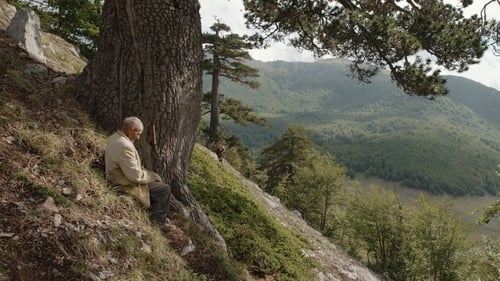
Sound Designer
In August 1961, speleologists from Italy’s booming North arrive on a Calabrian plateau where time stands still. The intruders discover one of the world’s deepest caves, the Bifurto Abyss, under the gaze of an old shepherd, the only witness of the pristine territory.

Editor
In August 1961, speleologists from Italy’s booming North arrive on a Calabrian plateau where time stands still. The intruders discover one of the world’s deepest caves, the Bifurto Abyss, under the gaze of an old shepherd, the only witness of the pristine territory.
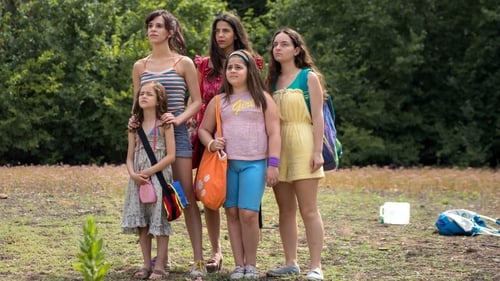
Sound Designer
Maria, Pinuccia, Lia, Katia and Antonella are five sisters who live in an apartment in Palermo. They make a living by renting doves for ceremonies. On a normal day at the beach, tragedy strucks.

Editor
Maria, Pinuccia, Lia, Katia and Antonella are five sisters who live in an apartment in Palermo. They make a living by renting doves for ceremonies. On a normal day at the beach, tragedy strucks.
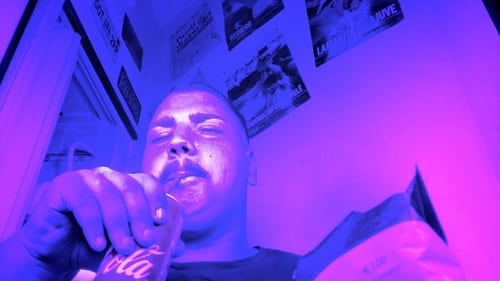
Sound Designer
Naples, Trajan's district. Initially it was intended for the inhabitants of the shantytowns on the seafront of Naples, who were homeless after the war. But it soon became a kind of ghetto. Alessandro and Pietro are two teenagers who film with an iPhone to tell their difficult neighborhood, their daily life, the friendship that binds them.
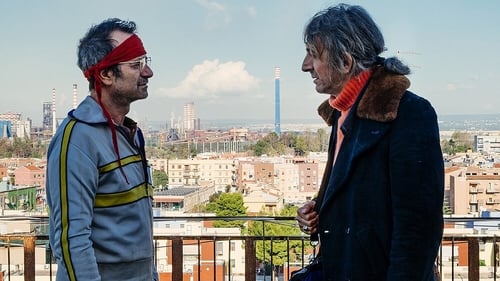
Editor
In a neighbourhood on the outskirts of Taranto, high upon the rooftops framed by the Ilva steel factory, we meet Tonino a.k.a. “Barboncino” (poodle). Tonino has just committed a robbery and, in a moment of foolishness, fled from his accomplices, taking the entire loot for himself. He escapes upward, clambering from roof to roof, until he can go no further and must take refuge in an old water tank. Here he finds Renato, a strange and eccentric man who believes he is an American Indian from the Sioux tribe. Trapped with no other choice, Tonino is forced to team up with Renato. A strange and crazy friendship is formed, and Tonino learns to see things from a very different perspective.

Editor
The life and times of Pippo Fava, a Sicilian journalist who fought the Mafia through his local newspaper in the '70s and early '80s, meeting an untimely end.

Editor
An immigration agent is torn between the job and his humanity.
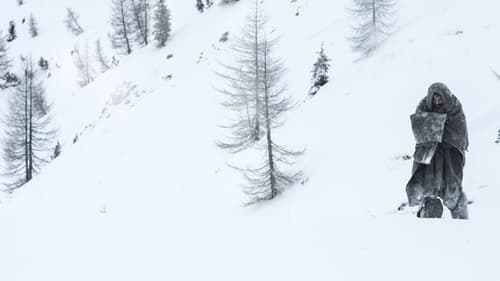
Editor
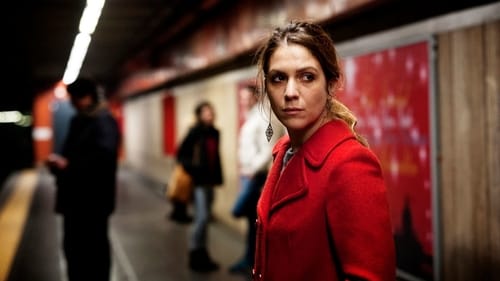
Editor
While her best friend Vale can afford to be a full-time performer, aspiring dancer Eli has an unemployed husband and four children to take care of, and works all day long in a cafe on the opposite side of the city, meaning she has to wake up before dawn and comes home late at night. Her kind and effervescent nature still manages to overcome this hardships.
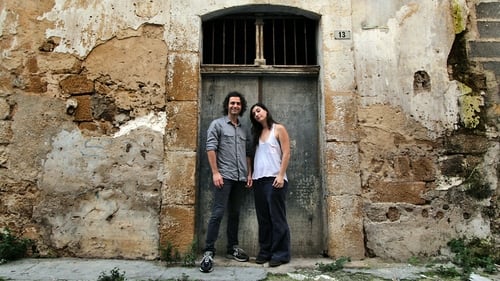
Editor
In the feature documentary, Summer 82 - When Zappa Came to Sicily, filmmaker and Zappa fan Salvo Cuccia tells the behind-the-scenes story of Frank Zappa's star-crossed concert in Palermo, Sicily, the wrap-up to a European tour that ended in public disturbances and police intervention. Cuccia had a ticket to the concert but never made it. Thirty years later, collaborating with Zappa's family, he re-creates the events through a combination of rare concert and backstage footage; photographs; anecdotes from family, band members, and concertgoers; and insights from Zappa biographer and friend Massimo Bassoli. The story is also a personal one, as Cuccia interweaves the story of Zappa's trip to Sicily with his own memories from that summer.
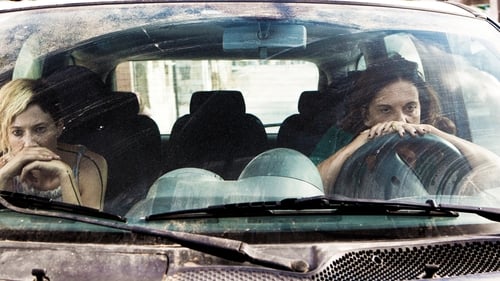
Editor
Shut inside their cars, two women face off in a silent duel that is fought out in the intimate violence of their stares. A wholly female duel punctuated by the refusal to drink, eat and sleep; more obstinate than the sun of Palermo and more stubborn than the ferocity of the men who surround them. For, as in every duel, it is a question of life or death... It’s a Sunday afternoon. The sirocco is blowing pitilessly in Palermo when Rosa and Clara lose their way in the streets of the city and end up in a sort of alley: Via Castellana Bandiera. At the same moment, another car driven by Samira, crammed with members of the Calafiore family, arrives from the opposite direction and enters the same street.

Editor
Wrapping the audience in waves of sound, Alberi takes us on a circular journey through the Italian countryside. The marvelous natural music at the tops of the eponymous trees makes way for the rhythmic cadence of civilization—men baring axes and the natural clatter of daily life—before their unforgettable return home from the forest. The singular artistry of director Michelangelo Frammartino (Le quatro volte) is beautifully displayed in this mesmerizing homage to nature.

Screenplay
On 8 August 1991, an Albanian ship carrying 20,000 people reached the port of Bari. The ship was called the “Vlora”. Mooring was difficult, and some of the passengers jumped overboard to swim to land, while many others chanted “Italia, Italia”, making the victory sign. On 7 August 1991, the ship, returning from Cuba, the “Vlora” had arrived at the port of Durrës with 10,000 tons of sugar in its hold. Work on unloading the sugar was underway when an enormous throng of thousands of people suddenly assailed the ship, forcing the captain to head for Italy. The next morning, waiting for the “Vlora” was an incredulous and stunned city and an empty football stadium where the Albanians were held before being sent back home. Twenty-one years have passed since that day. Most of the people who boarded that ship were sent back to Albania, but the crossings continued and many of them had another go. Today, 4.5 million foreigners live in Italy.

Editor
On 8 August 1991, an Albanian ship carrying 20,000 people reached the port of Bari. The ship was called the “Vlora”. Mooring was difficult, and some of the passengers jumped overboard to swim to land, while many others chanted “Italia, Italia”, making the victory sign. On 7 August 1991, the ship, returning from Cuba, the “Vlora” had arrived at the port of Durrës with 10,000 tons of sugar in its hold. Work on unloading the sugar was underway when an enormous throng of thousands of people suddenly assailed the ship, forcing the captain to head for Italy. The next morning, waiting for the “Vlora” was an incredulous and stunned city and an empty football stadium where the Albanians were held before being sent back home. Twenty-one years have passed since that day. Most of the people who boarded that ship were sent back to Albania, but the crossings continued and many of them had another go. Today, 4.5 million foreigners live in Italy.
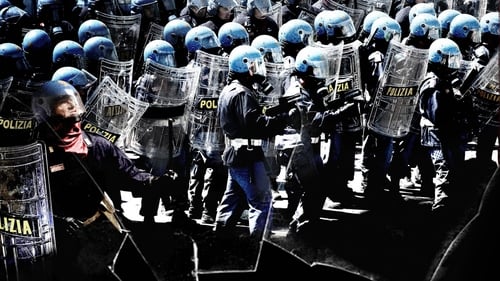
Sound Designer
On July 19–21, 2001, over 200,000 people took to the streets of Genoa to protest against the ongoing G8 summit. Anti-globalization activists clashed with the police, with 23-year-old protester Carlo Giuliani shot dead after confronting a police vehicle. In the aftermath, the police organized a night raid on the Diaz high school, where a hundred unarmed people between protesters—mostly students—and independent reporters who documented the police brutality during the protests had took shelter. What happened next would be called by Amnesty International "the most serious breach of civil liberties in a democratic Western country since World War II."

Editor
On July 19–21, 2001, over 200,000 people took to the streets of Genoa to protest against the ongoing G8 summit. Anti-globalization activists clashed with the police, with 23-year-old protester Carlo Giuliani shot dead after confronting a police vehicle. In the aftermath, the police organized a night raid on the Diaz high school, where a hundred unarmed people between protesters—mostly students—and independent reporters who documented the police brutality during the protests had took shelter. What happened next would be called by Amnesty International "the most serious breach of civil liberties in a democratic Western country since World War II."
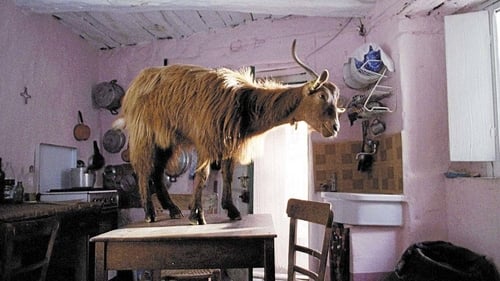
Sound Design Assistant
An old shepherd lives his last days in a quiet medieval village perched high on the hills of Calabria, at the southernmost tip of Italy. He herds goats under skies that most villagers have deserted long ago. He is sick, and believes to find his medicine in the dust he collects on the church floor, which he drinks in his water every day.

Editor
An old shepherd lives his last days in a quiet medieval village perched high on the hills of Calabria, at the southernmost tip of Italy. He herds goats under skies that most villagers have deserted long ago. He is sick, and believes to find his medicine in the dust he collects on the church floor, which he drinks in his water every day.
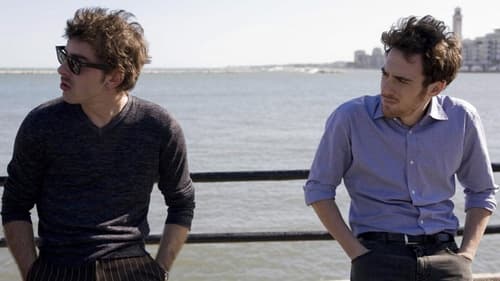
Sound Editor
A promising law student from a good family is driven by a cool cardsharper into a downward spiral of criminality, thus discovering an evil part of himself he has never known.

Editor
A journey from the south to the north of Italy covering the track of the legendary Joris Ivens documentary "L'Italia non è un paese povero".

Sound Editor
Filmaker Alina Marazzi assembles old home movies trying to piece together the life of her mother, Liseli, who committed suicide when Alina was seven years old.
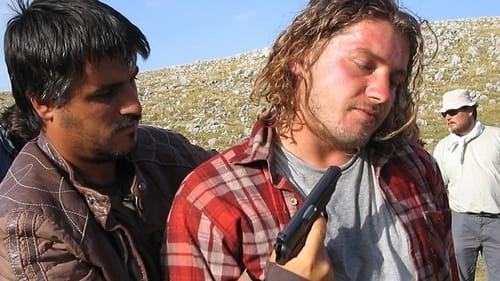
Sound Editor

Editor

Writer
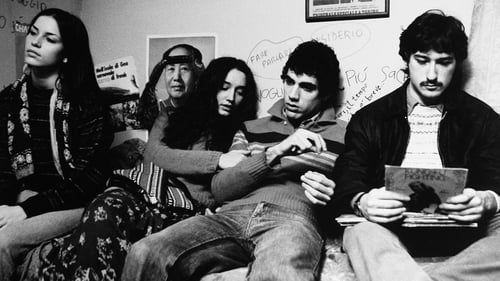
Sound Designer
Bologna, 1976. The paths of two aimless young friends intertwine with those of Radio Alice, a pirate radio politically aligned with the leftist student movement.

Sound Editor
For years, Andrei Evilenko eluded the obsessive Detective Lesiev and the psychiatric profiler Aron Richter. Spurred on by his rabid fury at the gradual crumbling of his precious Soviet Union, Evilenko is a man who will live, die and kill as a communist.
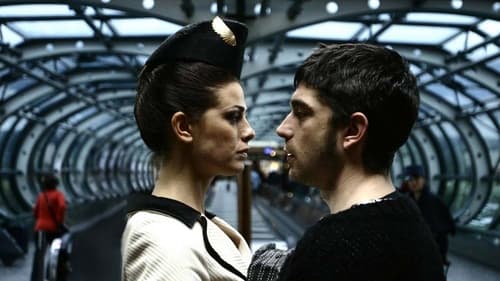
Sound Designer
Dante, a pony express in serious debt, meets Nina, a hostess stuck in Torino for the night.
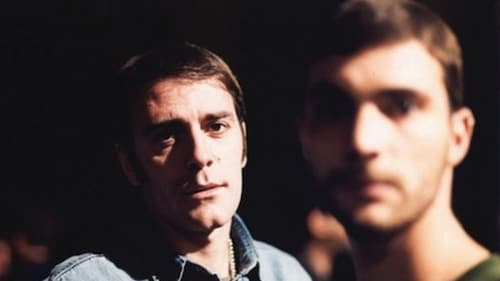
Sound Editor
In search of purpose, 17-year-old Claudio helps easygoing mechanic Stefano build a car capable of winning a street race that could solve his financial problems, all while going out with the latter's former girlfriend.

Sound Editor
An unemployed young man finds his life turned upside down when he falls in love with a beautiful actress.

Sound Editor
Vito is a bartender from Pegognaga, a small apparently anti-tourist town that in winter is obliterated by the fog and in summer by the heat. As a joke between friends, he ends up getting stuck between two concrete columns placed in front of his bar. However, the joint is so perfect that no one is able to free it anymore. The mayor arrives with the brigade, then the ASL nurses, the firefighters, but there is nothing to be done: Ciccio gets stuck and demolition projects are even made that arouse the terror of the tenants of the building. The only possible evolution of the story is that Ciccio, now known by all as "Cicciocolonna", gets stuck between the columns and becomes "a coincidence". In fact, the TV that spreads the news arrives: Cicciocolonna becomes a point of reference for the whole country. A kind of living monument, but also a sort of essay to which people go to ask for advice and even the numbers to play the lottery.

Sound Editor
シチリア島から大都市トリノにやってきた兄弟。兄は弟に教育を受けさせようと必死に働くが、弟は就職を切望。やがて弟は問題を起こしつつも、兄の希望通り教師になるが……。

Assistant Editor
『ライフ・イズ・ビューティフル』(原題:La vita è bella、英題:Life Is Beautiful)は、1997年のイタリア映画。ロベルト・ベニーニ監督・脚本・主演作品。第二次世界大戦下のユダヤ人迫害(ホロコースト)を、ユダヤ系イタリア人の親子の視点から描いた作品である。 カンヌ国際映画祭で審査員グランプリを受賞。第71回米国アカデミー賞で作品賞ほか7部門にノミネートされ、そのうち、主演男優賞、作曲賞、外国語映画賞を受賞した。また、トロント国際映画祭の観客賞やセザール賞の外国映画賞も受賞している。

Sound Editor
『ライフ・イズ・ビューティフル』(原題:La vita è bella、英題:Life Is Beautiful)は、1997年のイタリア映画。ロベルト・ベニーニ監督・脚本・主演作品。第二次世界大戦下のユダヤ人迫害(ホロコースト)を、ユダヤ系イタリア人の親子の視点から描いた作品である。 カンヌ国際映画祭で審査員グランプリを受賞。第71回米国アカデミー賞で作品賞ほか7部門にノミネートされ、そのうち、主演男優賞、作曲賞、外国語映画賞を受賞した。また、トロント国際映画祭の観客賞やセザール賞の外国映画賞も受賞している。
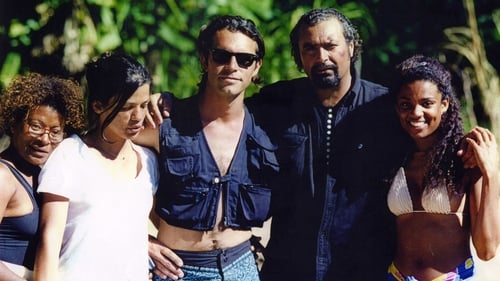
Assistant Editor
Matteo is a Roman barber whose business is full of debts. He decides to escape from this depressing reality by accepting his sister Angelina's invitation to Brazil.

Sound Editor
Matteo is a Roman barber whose business is full of debts. He decides to escape from this depressing reality by accepting his sister Angelina's invitation to Brazil.
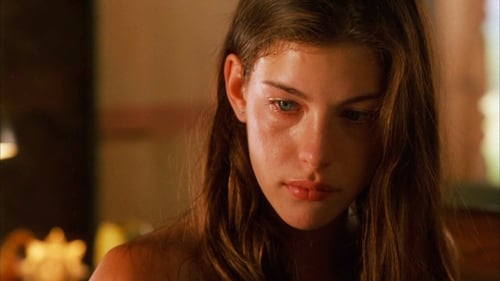
Dialogue Editor
Lucy Harmon, an American teenager is arriving in the lush Tuscan countryside to be sculpted by a family friend who lives in a beautiful villa. Lucy visited there four years earlier and exchanged a kiss with an Italian boy with whom she hopes to become reacquainted.
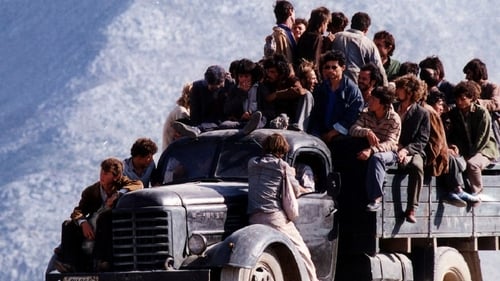
Sound Editor
Fiore, an Italian conman, arrives in post Communist Albania with Gino, his young apprentice, to set up a shoe factory that will never open. The con requires a native Albanian, so they designate Spiro, an impoverished and confused former political prisoner as chairman of the board. When Fiore returns to Italy to get government funds for the project, Spiro unexpectedly disappears and Gino sets out on a journey to find him. The search leads him to discover Spiro's tragic personal history and witness Albanian poverty firsthand.
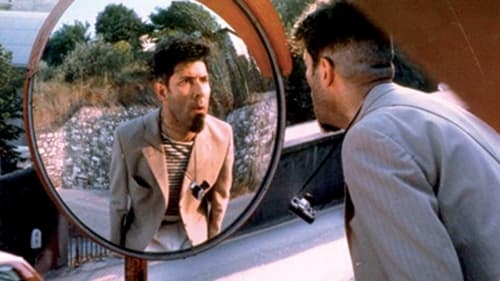
Assistant Sound Editor
In a small Tuscan village that's waiting for the local festival to commence, amidst confusion about the fall of Communism, the lives of some dazed characters intertwine.

































